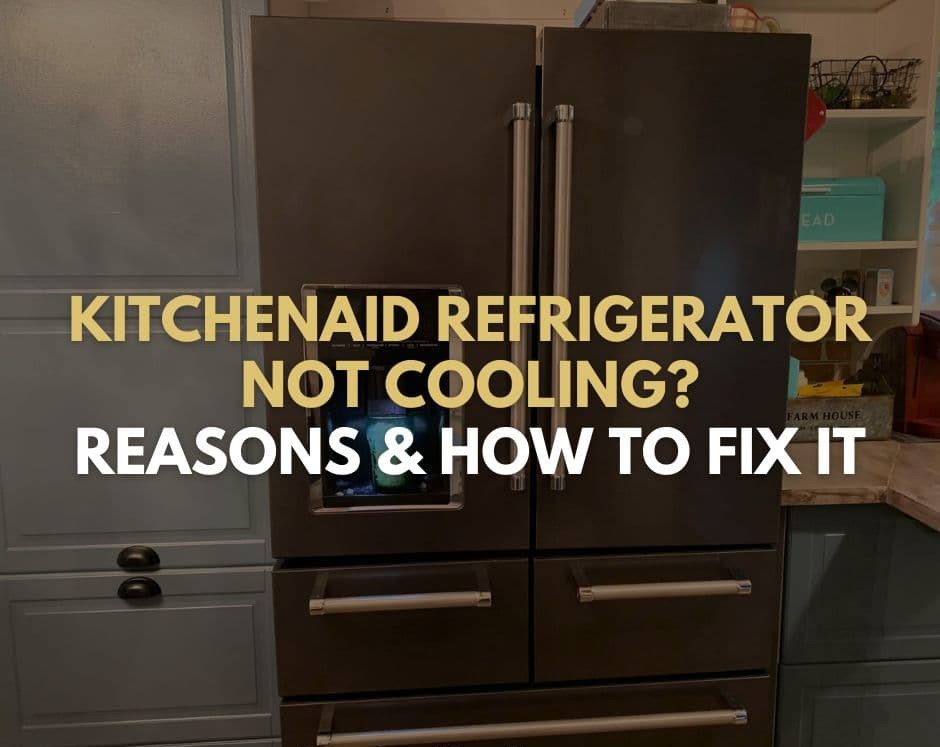
At KitchenAid Appliance Repair Professionals, we understand the frustration that comes with a malfunctioning appliance, especially when it’s an essential component like a refrigerator. As experts in KitchenAid refrigerator repair in New York, NY, we’re committed to providing you with the most comprehensive guide to resolving issues with your KitchenAid fridge.
Identifying Common KitchenAid Refrigerator Issues
1. Temperature Inconsistencies
One of the most common issues with KitchenAid refrigerators is temperature fluctuations. This can result from various factors, including malfunctioning thermostats, condenser coils clogged with dirt or debris, or compressor problems. Temperature inconsistencies can lead to food spoilage and compromise the freshness of your groceries.
- Step 1: Check the thermostat settings on your KitchenAid refrigerator to ensure they are set to the recommended temperature.
- Step 2: Inspect the condenser coils for dirt or debris buildup. If necessary, clean them using a vacuum cleaner or a soft brush.
- Step 3: Examine the compressor for any signs of malfunction, such as unusual noises or vibrations. If detected, consider contacting a professional for further inspection and repair.
2. Water Leakage
Water leakage is another prevalent issue with KitchenAid refrigerators. It can occur due to a variety of reasons, such as a clogged defrost drain, damaged water tank, or faulty door gasket. Ignoring water leaks can lead to water damage in your kitchen and surrounding areas.
- Step 1: Investigate the source of the water leakage, starting with the defrost drain. Clear any clogs by flushing warm water mixed with mild detergent through the drain tube.
- Step 2: Inspect the water tank and connections for any signs of damage or leaks. Replace any damaged components to prevent further leakage.
- Step 3: Check the door gasket for cracks or gaps that may allow water to escape. Replace the gasket if necessary to ensure a proper seal.
3. Unusual Noises
If you notice unusual noises coming from your KitchenAid refrigerator, it could indicate underlying issues that require attention. These noises may stem from problems with the condenser fan, evaporator fan, or compressor. Addressing these issues promptly can prevent further damage to the appliance.
- Step 1: Identify the source of the unusual noises by listening closely to the refrigerator’s operation.
- Step 2: Inspect the condenser fan and evaporator fan for any obstructions or signs of damage. Clean or replace the fans as needed to eliminate the noise.
- Step 3: Examine the compressor for any loose components or worn-out parts that may be causing the noise. Tighten or replace the affected parts to restore quiet operation.
4. Ice Maker Problems
Another common issue faced by KitchenAid refrigerator owners is malfunctioning ice makers. Issues such as a defective water inlet valve or faulty ice maker assembly can disrupt the ice-making process, affecting your daily routine.
- Step 1: Verify the water inlet valve for any blockages or malfunctions that may be impeding water flow to the ice maker.
- Step 2: Ensure that the water supply line is connected correctly and free from any kinks or obstructions.
- Step 3: Inspect the ice maker assembly for any visible damage or signs of malfunction, such as jammed mechanisms or broken components. Replace any faulty parts to restore proper ice-making functionality.
Tips for Troubleshooting and Repair
1. Temperature Adjustment
Start by adjusting the temperature settings on your KitchenAid refrigerator to the recommended levels. Ensure that the condenser coils are clean and free from dirt or debris, as this can affect cooling efficiency. Check the door gasket for any signs of wear and tear and replace it if necessary.
2. Defrost Drain Maintenance
Regularly clean the defrost drain to prevent clogs and ensure proper drainage. Use a mixture of warm water and mild detergent to flush out any accumulated debris from the drain tube. This simple maintenance task can prevent water leakage issues.
3. Inspection of Fans and Compressor
Inspect the condenser fan and evaporator fan for any obstructions or signs of damage. If the fans are not functioning properly, they may need to be replaced. Similarly, check the compressor for any unusual noises or vibrations, as these could indicate underlying problems that require professional attention.
4. Ice Maker Troubleshooting
If your KitchenAid refrigerator’s ice maker is not working correctly, check the water inlet valve for blockages and ensure that the water supply is connected correctly. Inspect the ice maker assembly for any visible damage or signs of malfunction, and replace any faulty components as needed.
Conclusion
In conclusion, maintaining your KitchenAid refrigerator in good working condition is essential to ensure its longevity and optimal performance. By following the troubleshooting and repair tips outlined in this guide, you can address common issues with your appliance effectively. However, if you encounter complex problems or require professional assistance, don’t hesitate to contact KitchenAid Appliance Repair Professionals for expert support.
Frequently Asked Questions (FAQs)
How often should I clean the condenser coils of my KitchenAid refrigerator?
Regular cleaning of the condenser coils is recommended every 6 to 12 months to ensure optimal cooling efficiency.
Why is my KitchenAid refrigerator making loud noises?
Unusual noises may indicate issues with the condenser fan, evaporator fan, or compressor. Contact us for professional diagnosis and repair.
My KitchenAid refrigerator’s ice maker is not working. What should I do?
Check the water inlet valve and ice maker assembly for blockages or malfunctions. If issues persist, schedule a repair service with us.
Experiencing issues with your KitchenAid refrigerator? Don’t wait! Contact KitchenAid Appliance Repair Professionals today for expert diagnosis and repair services.
